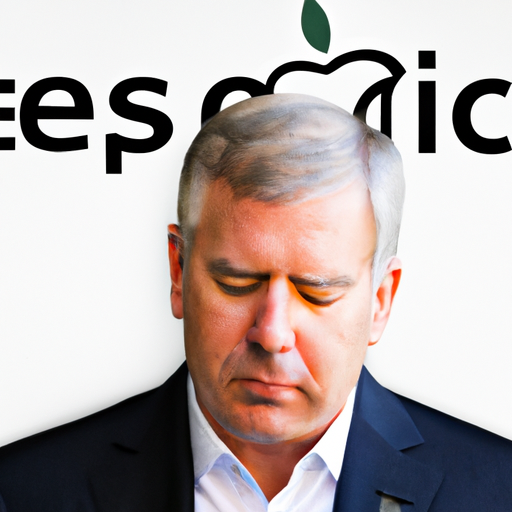In a recent development, Apple’s CEO, Tim Cook, made a bold statement regarding the European Union’s proposed regulations aimed at tech giants. The regulations are intended to curb the power of companies, such as Apple, Facebook, Google, and Amazon, by imposing stricter rules on their business practices and requiring more transparency.
During an interview with a renowned tech journalist, Cook expressed concerns about the potential impact of these regulations on innovation, competition, and customer experience. He argued that while he appreciates the EU’s efforts to ensure a level playing field, some aspects of the proposed regulations could have unintended consequences.
One-size-fits-all approach
An essential criticism voiced by Cook is the notion of a “one-size-fits-all” regulation that fails to consider the significant differences between companies and industries. He argues that each company operates in unique ways and across diverse sectors, which makes a uniform regulatory framework inadequate and potentially stifling.
Cook highlights that companies like Apple invest heavily in research and development, aiming to continuously push boundaries and develop cutting-edge products. These investments could be hampered if regulations create excessive bureaucratic hurdles, making it harder for companies to innovate effectively.
Customer privacy and security
Apple has always been at the forefront of championing user privacy and security, and Cook emphasizes the need to strike a balance between regulation and maintaining the highest standards of consumer privacy. While the European Union proposed regulations aim to protect user data and prevent potential abuses, Cook raises concerns about the potential unintended consequences of certain measures.
He stresses that Apple’s business model predominantly relies on hardware sales rather than data monetization. Imposing heavy-handed regulations on data usage, without distinguishing between companies based on their business models, could hinder legitimate activities while failing to curb the data practices of companies primarily engaged in monetizing user data.
Collaboration over regulation
Cook advocates for a collaborative approach that engages industry stakeholders in driving meaningful change. According to him, dialogues between governments, regulators, and tech companies are crucial to strike a balance that fosters innovation while addressing legitimate concerns effectively.
Apple’s CEO believes that it is vital for policymakers to work alongside technology companies to understand the complex landscape, potential trade-offs, and unintended consequences that certain regulations may have. In doing so, industry insights can inform regulatory decisions, leading to more practical outcomes.
In conclusion, as Apple faces the possibility of increased regulation in Europe, Tim Cook’s concerns revolve around the potential negative impacts on innovation, competition, and customer privacy. While recognizing the need for oversight, he advocates for a balanced and collaborative approach that takes into account the diversity of companies, their business models, and the potential for unintended consequences in order to ensure sustainable technology advancements in the future.
Note: This article is written for informative purposes only and does not constitute legal or professional advice.
If you found this article interesting, you may also enjoy reading: “Tech industry’s perspective on global regulations”
